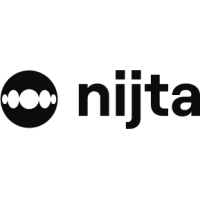The fifth edition of the Symposium on Security & Privacy in Speech Communication, focuses on speech and voice through which we express ourselves. As speech communication can be used to command virtual assistants to transport emotion or to identify oneself, the symposium encourages participants to give answers on how we can strengthen security and privacy for speech representation types in user-centric human/machine interaction? The symposium therefore sees that interdisciplinary exchange is in high demand and aims to bring together researchers and practitioners across multiple disciplines – more specifically: signal processing, cryptography, security, human-computer interaction, law, ethics, and anthropology. This symposium provides a venue for ongoing research stemming from the past successful workshops from the ISCA special interest group on Security & Privacy in Speech Communication (SPSC-SIG), where views of technological and humanities communities nurture one another to develop multidisciplinary and interdisciplinary skills.
For the general symposium, we welcome contributions to related topics, as well as progress reports, project dissemination, or theoretical discussions and “work in progress”. In addition, guests from academia, industry and public institutions as well as interested students are welcome to attend the conference without having to make their own contribution. In addition to the regular submissions, the participants of the VoicePrivacy Attacker Challenge will be invited to submit the extended versions of their challenge contributions.
Although, we aim for meeting all of you on-site, we also opt for virtual presentations during the symposium.
Dates
Paper submission opens
Paper submission deadline
Acceptance Notification
Final (camera ready) paper submission
Symposium
Proceedings available
Organizing Committee
Ingo SIEGERT, Otto von Guericke University Magdeburg, Germany
Sneha DAS, Technical University of Denmark, Denmark
Brij Mohan Lal SRIVASTAVA, Co-founder and CEO of Nijta, France
Natalia TOMASHENKO, Inria, France
Xiaoxiao MIAO, Duke Kunshan University, China
Program Committee
(alphabetical)
Ajinkya Kulkarni, Idiap Research Institute, Switzerland
Brij Mohan Lal Srivastava, Nijta, France
Candy Olivia Mawalim, Japan Advanced Institute of Science and Technology, Japan
David Boyle, Imperial College London, UK
Emmanuel Vincent, Inria, France
Gerald Penn, University of Toronto, Canada
Hemlata Tak, Pindrop, USA
Ingo Siegert, Otto von Guericke University Magdeburg, Germany
Jennifer Williams, University of Southampton, UK
Junichi Yamagishi, National Institute of Informatics, Japan
Korbinian Riedhammer, Nuremberg Institute of Technology, Germany
Lin Zhang, National Institute of Informatics, Japan
Md Sahidullah, TCG CREST & Academy of Scientific and Innovative Research (AcSIR), India
Natalia Tomashenko, Inria, France
Nick Evans, EURECOM, France
Pierre Champion, Inria, France
Sarina Meyer, University of Stuttgart, Germany
Sebastian Le Maguer, University of Helsinki, Finland
Simon King, University of Edinburgh, UK
Sneha Das, Technical University of Denmark, Denmark
Tim Polzehl, DFKI, Germany
Tom Bäckström, Aalto University, Finland
Xiaoxiao Miao, Singapore Institute of Technology, Singapore
Xin Wang, National Institute of Informatics, Japan
You (Neil) Zhang, University of Rochester, USA
Ziqian Luo, Carnegie Mellon University, USA


